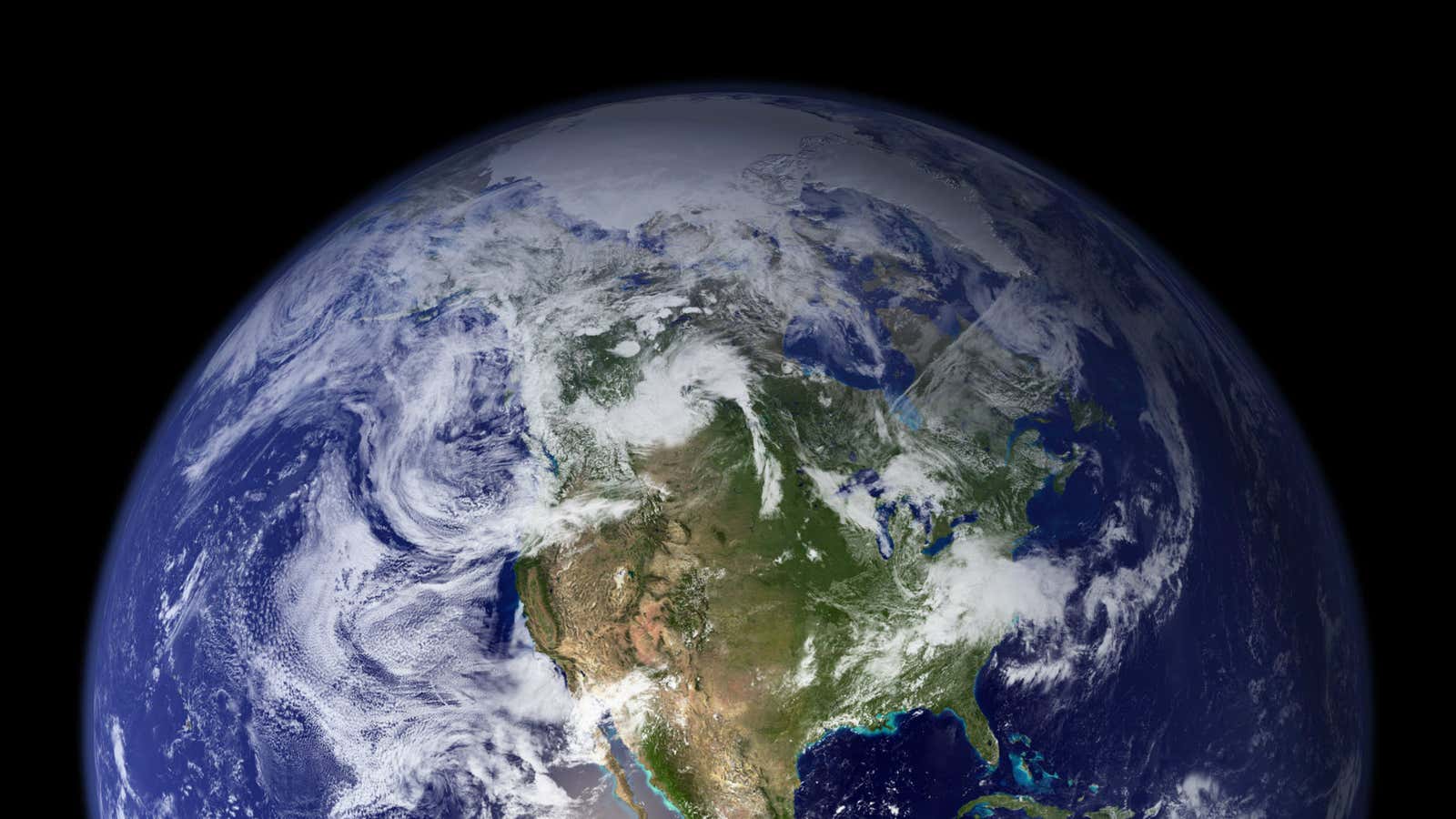The view of earth from space is so spectacular that it can apparently transform astronauts’ perspectives on life—and even draw these scientists toward religion and spiritualism.
“Something happens to you out there,” Apollo 14 astronaut Edgar Mitchell has said. “You develop an instant global consciousness, a people orientation, an intense dissatisfaction with the state of the world, and a compulsion to do something about it.”
Mitchell described this emotion as “interconnected euphoria” and several other astronauts have reported similar feelings of awe.
“I felt the world was just… there was too much purpose, too much logic,” said astronaut Gene Cernan. “It was too beautiful to happen by accident. There has to be somebody bigger than you, and bigger than me, and I mean this in a spiritual sense, not a religious sense.”
This moment of awe has had a permanent effect on some astronauts’ lives. Charlie Duke, a lunar module pilot for Apollo 16, became a Christian after seeing earth from space; Jim Irwin of Apollo 15 became a preacher; Edgar Mitchell formed the Noetic Institute to research altered states of consciousness; and Apollo 9 astronaut Russell Schweickart began transcendental meditation and dedicated himself to voluntary work.
In 1987, the writer Frank White interviewed and studied testimony from 29 astronauts and came up with the “overview effect” theory, arguing that the sight of earth from space transforms astronauts’ perspectives on themselves and the world.
Such a profound experience is unique to space travel, White says, and he argues that there’s a physiological explanation. “The fact that this perspective happens while the person is in zero gravity is an integral part of the experience,” he told Universe. And indeed, some studies do suggest that travelling at great heights can have a psychological effect. In 1957, a study of jet aviators flying above 13,000 feet found that around one in three have “break-off” experiences, which include feelings of exhilaration, awe, and separation from problems of the world.
But it’s also possible that the “overview effect” originates in the mind, not in a physiological state—and that it can be recreated here on Earth.
After all, there’s a long history of associating space with religion or spirituality, and the “overview effect” could simply be a cultural phenomenon. The planets in our solar system have names derived from Greek or Roman gods, and early 20th century Russian space theorists were members of a philosophical “Cosmism” movement that saw space travel as a means of connecting the human race.
Cosmist ideas also shape American attitudes to space travel, Albert Harrison, a former professor of psychology at U.C. Davis, has said. “You see this idea over and over when space exploration is discussed, the idea that we can leave behind the problems that plague society here on Earth and we create these wonderful new societies in space,” he told the Atlantic. “There’s a general resemblance in this thinking to religious views of heaven, and in particular notions of salvation.”
If astronauts’ feelings of awe are simply an expression of cultural attitudes, then the physical effects of space travel wouldn’t be necessary to provoke the “overview effect.”
Neuroscientist Andy Newberg has studied brain scans of people who have had religious or spiritual experiences on earth, and believes that space travel could have a similar effect to transcendental meditation. He hopes to study the brains of space tourists to monitor any physical effects of space travel and determine whether the view of earth from space can induce a state of euphoria.
But the sense of awe described by astronauts needn’t be inaccessible to earth-bound humans. After all, just as astronaut Gene Cernan was struck by the logic and purpose of the world from space, 18th century philosopher William Paley, who compared design of the world to the intricate construction of a watch, had a similar epiphany here on earth.
So if you can’t afford a ticket into space, then try transcendental meditation or reading philosophy. You don’t need to travel to the moon for a change in perspective.
